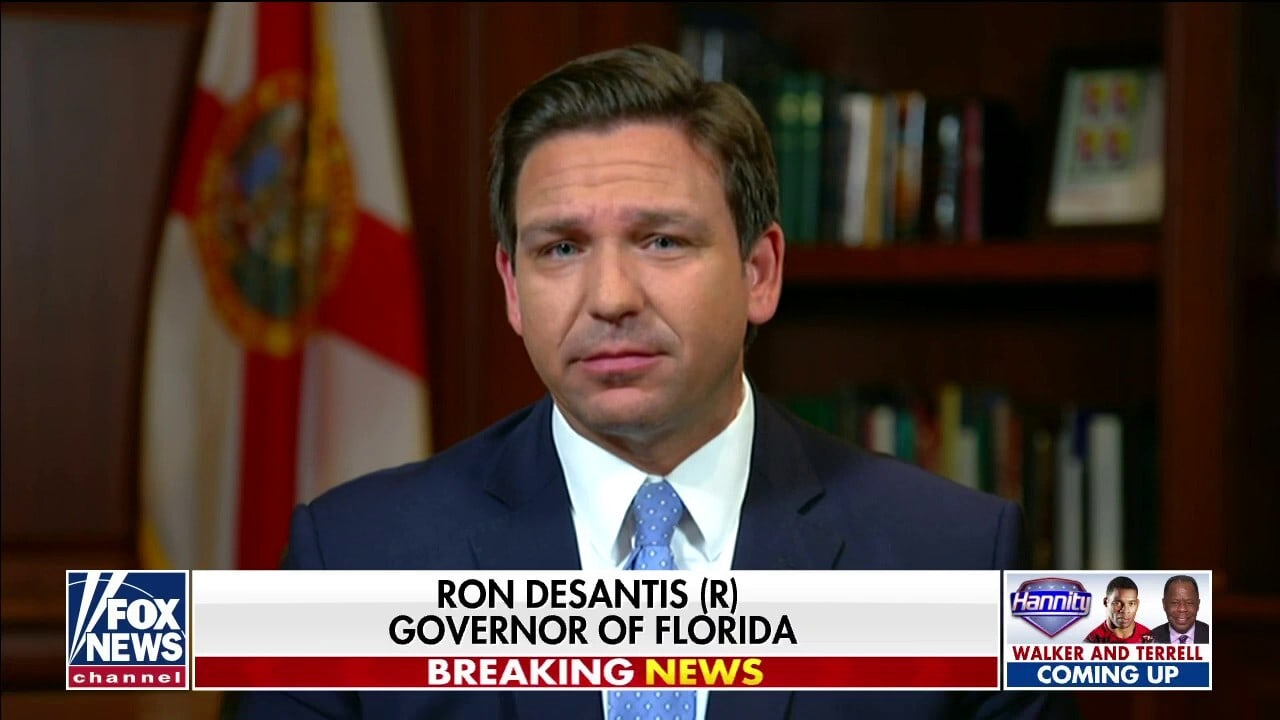Why Florida Governor Ron DeSantis Wins the Commander-in-Chief Test: After the first Republican presidential debate of the 2024 election, American voters are correctly starting to ask which of the prospective candidates can plausibly serve as the Commander-in-Chief of the United States?
Given the extraordinary powers the U.S. Constitution invests in the Executive Branch, there is perhaps no more important yardstick for a presidential aspirant.
During my tenure as at the White House’s National Security Council, it became clear that the traditional metrics used by the media and Beltway pundits to determine a candidate’s fitness for Commander-in-Chief are laughably wrong. Most of the chattering class reduce readiness to lead America’s military and national security apparatus to a resume contest, with a premium placed on years (or preferably decades) logged in Washington.
My experience in the White House taught me that there are several leadership factors that determine whether a presidential aspirant will excel in the role of Commander-in-Chief. Governor Ron DeSantis has demonstrated, through his leadership in Florida, that he has the tangible traits needed to not just improve upon the Biden Administration’s failures but rather to reorient American national security policy in a drastically new direction to meet future threats.
Discipline
It cannot be overstated how essential it is for the Commander-in-Chief to operate in a disciplined manner. While this seems axiomatic, it should not be assumed. The U.S. faces an existential challenge from China, regional threats from Russia, Iran, and North Korea, and transnational challenges like Islamist terrorism and narcotrafficking. These threats are often linked and do not wait for one to resolve itself before the next appears on the President’s desk. The President’s Daily Briefing is a never-ending litany of potential threats, but also opportunities to pursue American interests. A President who lacks the energy or focus to assess these challenges, or who is easily distracted by insignificant issues or personal grievances, will fail to fully exercise American leadership.
Ron DeSantis’ tenure as governor has been defined by extraordinary discipline. In the face of unrelenting attacks over his Covid-19 leadership, DeSantis held firm, resisted disastrous lockdowns, and earned his state the envy of millions of Americans whose livelihoods had been lost and whose children’s development was stymied. With negative media attention unlike anything a state-level executive has faced in modern times, DeSantis vigorously cut taxes, implemented historic school choice initiatives, and stood for law and order. DeSantis never wavered in his methodical approach to governance despite withering assault from DC and New York elites.
Personnel
The Trump Administration was beset from before it began by bad personnel choices, and it hobbled the President across his tenure, including on national security. President Trump’s Cabinet included numerous members who regarded him with personal disdain and were not afraid to admit it. From trade to rebuilding the military to the management of U.S. alliances abroad to ending disastrous forever wars, the Trump Administration had to fight itself before it could implement the agenda the President was elected to achieve. In too many cases, this meant that agenda never got started.
Ron DeSantis has shown that he surrounds himself with effective appointees who share his agenda and are both loyal and competent. From appointing Florida Surgeon General Joseph Ladapo, one of the leading voices of medical skepticism during the Covid lockdowns, to removing State’s Attorneys who flagrantly refuse to enforce the law, DeSantis has demonstrated his appreciation of that old saying that personnel is policy.
Vision
The Commander-in-Chief needs the discipline to meet challenges and the instinct to appoint the right people, but he also needs what former President George H.W. Bush dismissively called “the vision thing”. Simply drifting from policy to policy without a larger purpose, or expressing little interest in the nuances of decisions before him, is not a recipe for success. There must be a larger appreciation of America’s role in the world, the uses of American power, and the objectives the President seeks to attain. Ron DeSantis has shown deep vision in Florida by aiming to make his state “the free state of Florida”, with nearly all his policies supporting the goal of a Sunshine State friendly for taxpayers, parents, and ordinary Americans who simply wish to live free of Beltway contempt.
Service
Finally, Ron DeSantis is the only candidate who served in the United States military. After the terrorist attacks on September 11, 2001, a young Ron DeSantis, freshly graduated from Harvard Law School, volunteered to serve in the Navy and volunteered to go to Iraq alongside Navy SEAL Team One. His service earned him a Bronze Star, and as he has written about his lessons in Iraq, he understands the burden that falls on our men and women of our all-volunteer force and how critical it is that there is a clear mission for those we send to fight overseas.
Republican voters will have time to examine each candidate’s position on specific foreign policy and national security issues. But with the first debate behind us, voters should more closely examine potential Commanders-in-Chief by their discipline, their record of surrounding themselves with quality personnel, and their ability to enunciate a vision of governance and stick to it. Ron DeSantis has already passed that test.
Alexander Gray served as Deputy Assistant to the President and Chief of Staff of the White House National Security Council during the Trump Administration, 2019-21.

